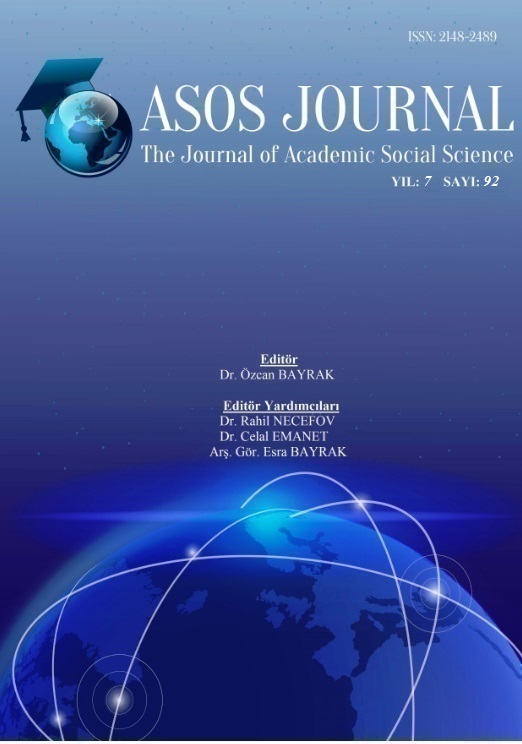Author :
Abstract
İçinde bulunduğu topluma eleştirel bir bakış açısından bakan, toplumun aksayan yönlerine dikkat çeken, karamsar, teknolojinin hayal edilemeyecek noktalara ulaştığı baskıcı bir toplum tasavvur eden distopik romanlar konu olarak geleceği ele alsa da şu andan kopmaz. Türk edebiyatında oldukça ender yazılan distopik romanlardan biri olan Kaan Arslanoğlu’nun Sessizlik Kuleleri 2084, George Orwell’in türün en iyi eserlerinden olan Bin Dokuz Yüz Seksen Dört romanında yüz yıl sonrasıyla ilgilenir. Orwell’in eserinde gördüğümüz bireyi yok eden baskıcı sistem 2084 yılında da oldukça açıktır. Teknolojinin gelişmesi dünyayı felaketten kurtarmış olsa da insanların farklılıklarını ve özelliklerini ellerinden almış, mekanik bir toplum oluşturmuştur. Yevgeni Zamyatin’in Biz adlı eseri ise dünya edebiyatının ilk distopik romanlarından biridir. 200-Yıl Savaş’ı sonrası hayatta kalmaya çalışan insanların oluşturduğu topluluk 2084’teki toplum ile bazı benzerlikler gösterir. Bu çalışmada alışılagelmiş toplum düzeni bir felaket sonucu ortadan kalktığında yeni sistemlerin Türk, Rus ve İngiliz romanlarında nasıl yansıtıldığı tartışılacaktır. Arslanoğlu ve Zamyatin’in romanlarının ortak noktası ise insanlığın neredeyse sonunu getiren küresel bir felakettir. Bir taraftan teknolojinin son nimetlerini kullanıp sıfırdan yeni bir dünya inşa edilen hayal gücü ve çeşitliliğin olmadığı 2084 dünyası, diğer taraftan kentlerin yaşanamaz bir hale geldiği, tek çarenin Yeşil Duvar inşa edilerek dış dünyadan izole edilmiş bireyler yerine sayılardan oluşmuş baskıcı bir toplum.
Keywords
Abstract
Although dystopian novels, which approach to their societies from a critical perspective, attract attention to defects in them, and imagines authoritative regimes where technology is at an inconceivable point, are about the future in essence, they do not lose touch with the present. Kaan Arslanoğlu’s novel Sessizlik Kuleleri 2084, a rare dystopian example in Turkish literature, narrates a hundred years after George Orwell’s Nineteen Eighty-Four, the finest example of the category. The repressive regime destroying individuality in Orwell’s novel continues its existence in 2084 as well. Although the advancement of technology saves the world from destruction, it removes people’s differences and characteristics; at the end it forms a mechanical community. Yevgeny Zamyatin’s novel We is one of the first dystopian novels ever written in the world. The community of the people trying to survive after the Second Hundred Years’ War shares some similarities with the community in 2084. This study investigates how the new systems are reflected in Turkish, Russian, and English novels after the old ones are abolished because of a disaster. The common point of Arslanoğlu’s and Zamyatin’s novels is a global disaster bringing the world to an almost end. On the one hand, there is the world in 2084 which uses the latest technological developments and creates a brand-new society without imagination and diversity, on the other hand there is the repressive world building the Green Wall to isolate not the individuals but the numbers from the rest of the world as the other parts are uninhabitable.
